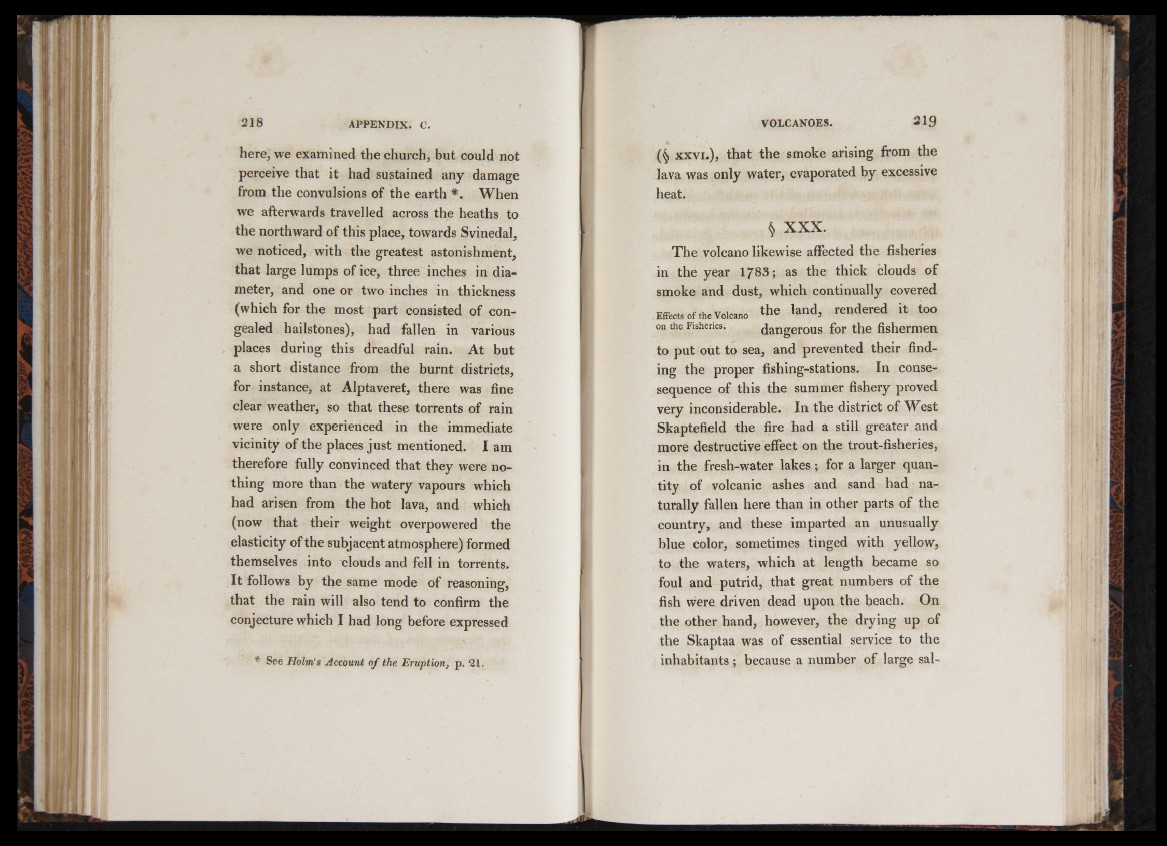
here, we examined the churchy but could not
perceive that it had sustained any damage
from the convulsions of the earth *. When
we afterwards travelled across the heaths to
the northward of this place, towards Svinedal,
we noticed, with the greatest astonishment,
that large lumps of ice, three inches in diameter,
and one or two inches in thickness
(which for the most part consisted of congealed
hailstones), had fallen in various
places during this dreadful rain. At but
a short distance from the burnt districts,
for instance, at Alptaveret, there was fine
clear weather, so that these torrents of rain
were only experienced in the immediate
vicinity of the places just mentioned. I am
therefore fully convinced that they were nothing
more than the watery vapours which
had arisen from the hot lava, and which
(now that their weight overpowered the
elasticity of the subjacent atmosphere) formed
themselves into clouds and fell in torrents.
I t follows by the same mode of reasoning,
that the rain will also tend to confirm the
conjecture which I had long before expressed
* See Holm’s Account of the Eruption, p. 2 1 .
(§ xxvi.), that the smoke arising from the
lava was only water, evaporated by excessive
heat.
§ XXX.
The volcano likewise affected the fisheries
in the year 1783; as the thick clouds of
smoke and dust, which continually covered
Effects o f th e Vokimo ,and> rendered it too
on the Fisheries. dangerous for the fishermen
to put out to sea, and prevented their finding
the proper fishing-stations. In conse-
sequence of this the summer fishery proved
very inconsiderable. In the district of West
Skaptefield the fire had a still greater and
more destructive effect on the trout-fisheries,
in the fresh-water lakes ; for a larger quantity
of volcanic ashes and sand had naturally
fallen here than in other parts of the
country, and these imparted an unusually
blue color, sometimes tinged with yellow,
to the waters, which at length became so
foul and putrid, that great numbers of the
fish were driven dead upon the beach. On
the other hand, however, the drying up of
the Skaptaa was of essential service to the
inhabitants ; because a number of large sal